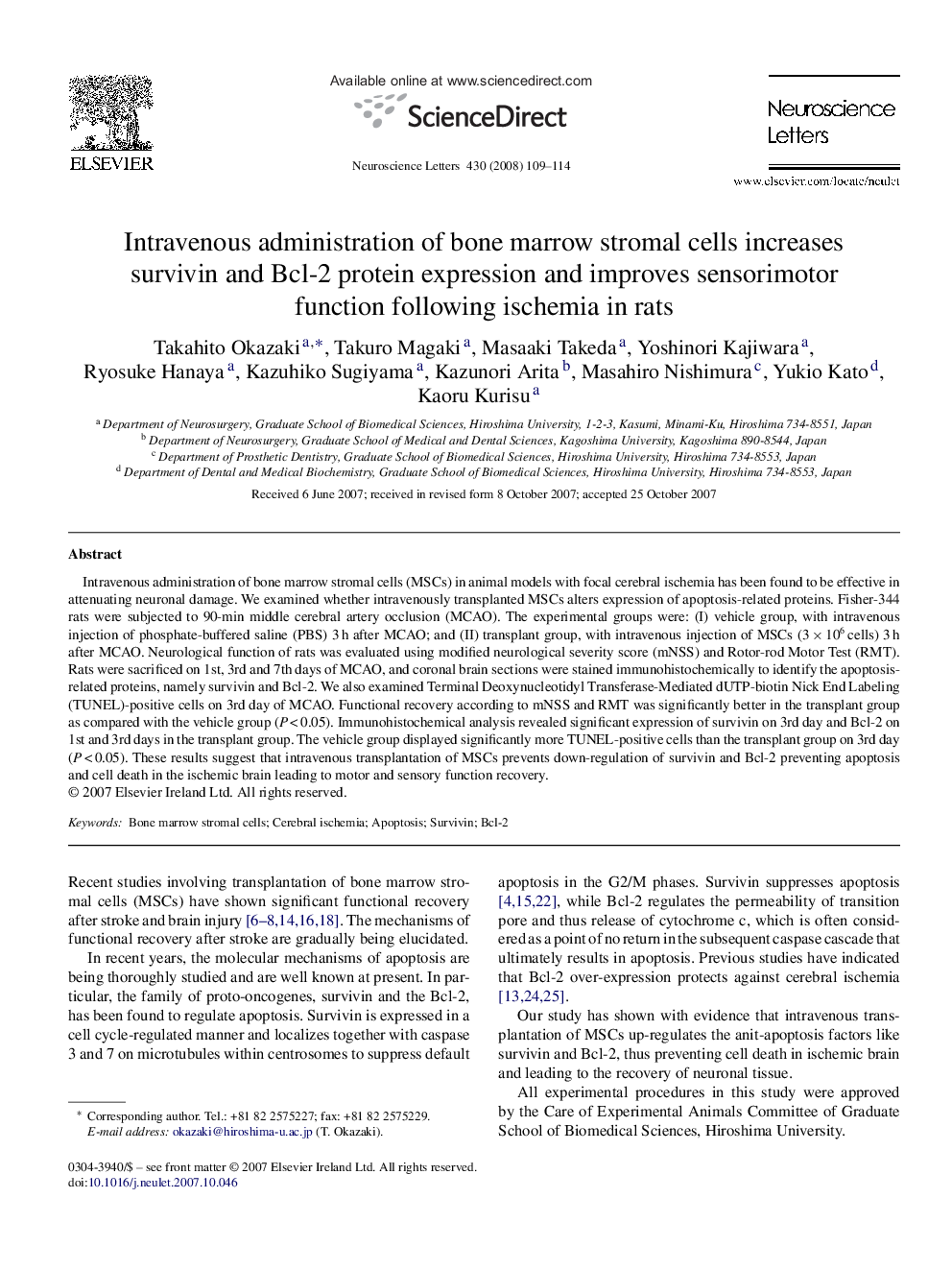| Article ID | Journal | Published Year | Pages | File Type |
|---|---|---|---|---|
| 4348901 | Neuroscience Letters | 2008 | 6 Pages |
Intravenous administration of bone marrow stromal cells (MSCs) in animal models with focal cerebral ischemia has been found to be effective in attenuating neuronal damage. We examined whether intravenously transplanted MSCs alters expression of apoptosis-related proteins. Fisher-344 rats were subjected to 90-min middle cerebral artery occlusion (MCAO). The experimental groups were: (I) vehicle group, with intravenous injection of phosphate-buffered saline (PBS) 3 h after MCAO; and (II) transplant group, with intravenous injection of MSCs (3 × 106 cells) 3 h after MCAO. Neurological function of rats was evaluated using modified neurological severity score (mNSS) and Rotor-rod Motor Test (RMT). Rats were sacrificed on 1st, 3rd and 7th days of MCAO, and coronal brain sections were stained immunohistochemically to identify the apoptosis-related proteins, namely survivin and Bcl-2. We also examined Terminal Deoxynucleotidyl Transferase-Mediated dUTP-biotin Nick End Labeling (TUNEL)-positive cells on 3rd day of MCAO. Functional recovery according to mNSS and RMT was significantly better in the transplant group as compared with the vehicle group (P < 0.05). Immunohistochemical analysis revealed significant expression of survivin on 3rd day and Bcl-2 on 1st and 3rd days in the transplant group. The vehicle group displayed significantly more TUNEL-positive cells than the transplant group on 3rd day (P < 0.05). These results suggest that intravenous transplantation of MSCs prevents down-regulation of survivin and Bcl-2 preventing apoptosis and cell death in the ischemic brain leading to motor and sensory function recovery.
